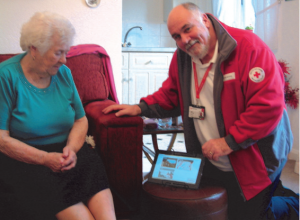Many of us have those moments where you walk upstairs to get something, get to the landing and have no idea what it was you went upstairs for! We put the kettle on, get our favourite mug out ready for a nice cup of tea, only to come back into the kitchen an hour later with the tea still unmade. Someone gives us directions and within seconds we can’t remember whether it is left or right at the post box.
The causes of forgetfulness are numerous. They run from being overwhelmed with responsibility and demands to not paying close enough attention – we simply didn’t “hear” the instructions in the first place. Other times we are so distracted by everything that is going on around us that we are on overload and have too much to remember and can’t. But when should we worry that it is becoming more serious?
Forgetfulness results from changes in the brain and can be a normal part of aging or a symptom of another condition or disease. When you experience forgetfulness, you may find it harder to recall information or events, learn new things, or form new memories. As people get older, changes occur in all parts of the body, including the brain. As a result, some people may notice that it takes longer to learn new things, they don’t remember information as well as they did, or they lose things like their glasses. These usually are signs of mild forgetfulness, not serious memory problems. Abnormal forgetfulness isn’t only about failing to remember; it’s more complex than that.
Be concerned when you see a pattern of deteriorating functioning, not just correctable incidents of forgetting. Loss of previous abilities or negative changes in long-established, characteristic behaviour and personality patterns indicates a need to seek help. Understanding normal forgetfulness can help us adjust more gracefully to the challenges of healthy aging. We need to give ourselves and our loved ones more time to recall events, names, and words as we age, because “normal” recall can take longer. Knowing that can help us plan to build in extra time for certain events or tasks.
http://www.nia.nih.gov/health/publication/forgetfulness
http://www.patient.co.uk/health/Memory-Loss-and-Dementia
http://www.ehow.com/about_5137621_causes-forgetfulness.html#ixzz32X7tjZtD
http://psychcentral.com/lib/when-to-worry-about-forgetfulness/00013100


















